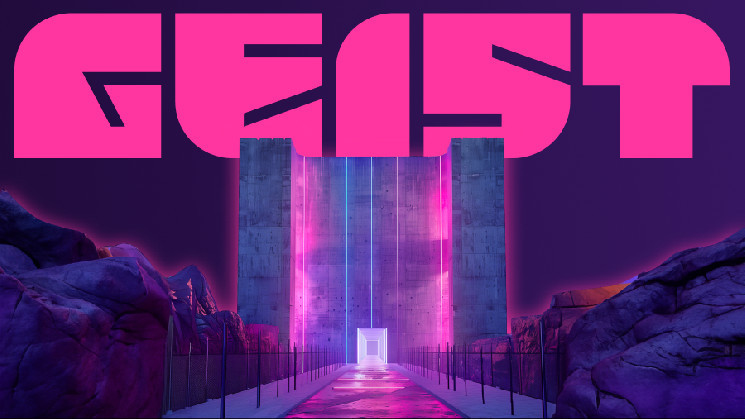Pixelcraft Studios, the company behind crypto game Aavegotchi, is creating a “members-only” Ethereum layer-3 gaming network called Geist, built with the scaling tech of both Arbitrum and Base. The move comes as the company fears that “industrial farming” is an issue preventing real players from enjoying crypto gaming.
“A lot of crypto games are farms,” the pseudonymous CEO and founder of Pixelcraft Studios, Coder Dan, told Decrypt, “[and] there’s nothing wrong with a farmer.”
“But the problem is that they’re industrial farmers,” he continued. “These are not your mom-and-pop farms. These are industrial compound combine farms that are there for one purpose, and that is to extract as much value from the protocol as they can.”
Tons of games this year have incentivized gamers to play with the promise of a future airdrop. Most notably, tap-to-earn games like Hamster Kombat have taken over the crypto gaming space on messaging app Telegram. Many of these games appear to embrace farmers, incentivizing players to engage from multiple angles, including watching YouTube videos to find secret codes. But the premise dates back to well before Telegram gaming.
“It didn’t start with that, it started with play-to-earn,” Coder Dan explained. “Over time, since the inception of GameFi in 2021, I think farmers have just gotten more and more skilled at this game.”
Play-to-earn games such as Axie Infinity were popular during the last bull cycle of 2021, racking up billions of dollars’ worth of NFT sales. But Axie’s economy famously crashed as hype started to fade. This model has been tweaked, rebranded, and repackaged in the form of play-to-airdrop campaigns— but Coder Dan believes that farmers have just gotten better at gaming the system.
“If you’re just trying to do a big event and get a lot of attention and get your numbers high, it can work,” he told Decrypt, “We have a different game we’re trying to play. We’re trying to make a sustainable GameFi ecosystem.”
That’s why Pixelcraft Studios’ new gaming network Geist is set to require a monthly membership fee in order to claim rewards—although anyone can play games on the network for free. This fee has yet to be set in stone, but Coder Dan gave a potential range between $9 and $19.
@coderdannn showing off @gotchiguardians at @arbitrum game night in Ebisu, Japan.
Just one of the many @aavegotchi titles going live on @PlayOnGeist this October.
Game on 👻🇯🇵👾 pic.twitter.com/9N74Jt79al
— lostlocal.eth 👻🦇🔊 (@jasondesimone) August 26, 2024
With this, members can earn badges, level up their player profiles, open loot boxes, earn a portion of marketplace fees through staking, and participate in airdrop campaigns. An airdrop campaign is in the works for Aavegotchi’s metaverse game Gotchiverse, with plans for the campaign to extend to other games on the Geist network.
“I think play-to-airdrop is a fun mechanic. The issue is that it just gets botted so hard that it’s become a joke almost,” Coder Dan told Decrypt. “With this new primitive, if you will, of the members-only blockchain, I think we might be able to breathe some new life into the play-to-airdrop mechanic.”
But a members-only network isn’t designed to only benefit the game studio behind it. Coder Dan believes that by reducing the amount of fake activity, they’ll ultimately increase the potential rewards for legit gamers.
“I think that you can boil it down to: There will be more rewards given to a smaller group of users,” Coder Dan told Decrypt.
To begin, only Aavegotchi NFT holders will be granted an invite and a plus-one to become a member on the network. In addition to this, Pixelcraft will be handing out a select number of invites to partnered communities, games, and influencers with the incentive that if they onboard paying members, they’ll receive more invites.
All games on the network will be centered around, or at least briefly include, the Aavegotchi IP—even third-party developers are being told they must include Aavegotchi in some way. In doing this, Geist aims to become one of the first places that true interoperability can exist.
“With Aavegotchi, a lot of people own the assets—and these developers are creating games around the assets,” Coder Dan said of the game’s existing NFTs. “We’re kind of the tip of the spear in this movement of being able to share your assets across different games, and trying to reinvigorate that movement.”
Geist is aiming for a launch towards the end of September or October, with four games created by Pixelcraft Studios available at launch. Another four games are planned for launch or “very soon” after, he added.
Edited by Andrew Hayward



